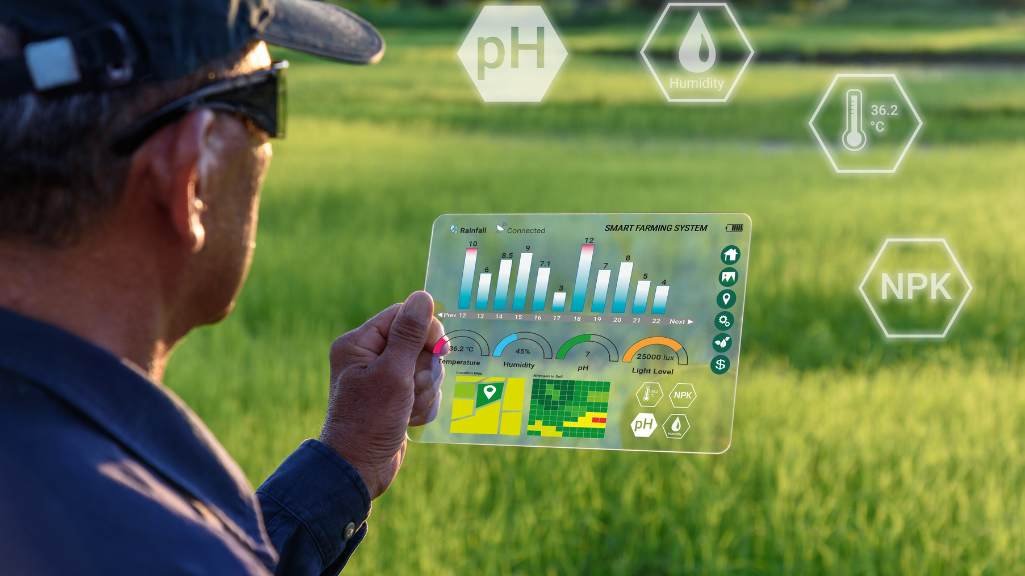Revolutionizing Agriculture: Innovations and Trends Shaping the Future
Steffan Addison
. 2 min read
Agriculture has been a cornerstone of human civilization since its inception. However, with the world's population steadily increasing and environmental challenges becoming more pressing, the agricultural sector is undergoing a transformative revolution. This article explores the innovative technologies, sustainable practices, and emerging trends that are reshaping the landscape of agriculture, with the help of dedicated developers who are creating groundbreaking software, smart farming systems, and advanced analytics tools. These developers are playing a crucial role in paving the way for a more productive, efficient, and sustainable future in agriculture.

Emerging Trends in Agricultural Practices
- Precision Agriculture: Precision agriculture is revolutionizing the way crops are cultivated and managed. It involves the use of advanced technologies such as GPS, remote sensing, and data analytics to optimize the use of resources like water, fertilizers, and pesticides. Farmers can gather precise information about soil conditions, crop health, and nutrient requirements, enabling them to make data-driven decisions and minimize waste. This approach maximizes yields, reduces costs, and minimizes the environmental impact of farming practices.
- Vertical Farming: Vertical farming is gaining popularity, particularly in urban areas where land is scarce. This innovative method involves growing crops indoors in vertically stacked layers, often in controlled environments like warehouses or high-rise buildings. LED lighting, hydroponics, and aeroponics systems create ideal growing conditions, allowing year-round cultivation with significantly less water and land compared to traditional farming methods. Vertical farming offers local produce, reduces transportation costs, and provides fresh food in areas with limited agricultural space.
- Sustainable Farming Practices: With the growing emphasis on environmental sustainability, farmers are increasingly adopting practices that preserve and enhance the ecosystem. Organic farming, agroforestry, and regenerative agriculture are gaining momentum worldwide. These practices promote soil health, biodiversity, and natural pest control while reducing chemical inputs. By incorporating cover crops, crop rotation, and conservation tillage, farmers can minimize soil erosion, enhance water quality, and mitigate greenhouse gas emissions.
- Agricultural Drones: Drones equipped with sensors and cameras are revolutionizing crop monitoring and management. These unmanned aerial vehicles (UAVs) can survey large areas of farmland quickly, collecting valuable data on crop health, irrigation needs, and pest infestations. Farmers can use this information to identify potential issues early on and take appropriate action, resulting in improved crop yields and reduced costs. Drones also minimize the need for manual labor and can reach inaccessible or hazardous areas.
- Internet of Things (IoT) in Agriculture: The Internet of Things is making agriculture smarter and more connected. IoT devices, such as soil moisture sensors, weather stations, and automated irrigation systems, enable real-time monitoring and control of farm operations. Farmers can remotely manage irrigation, temperature, and humidity, optimizing resource utilization and improving crop productivity. Data collected from IoT devices can be analyzed to provide valuable insights for predictive analytics, disease detection, and yield forecasting.
- Biotechnology and Genetic Engineering: Advancements in biotechnology and genetic engineering are enhancing crop traits, improving disease resistance, and increasing nutritional value. Genetic modification techniques enable the development of crops with enhanced drought tolerance, pest resistance, and higher yields. Biotechnology also plays a crucial role in developing sustainable alternatives to chemical fertilizers and pesticides, reducing environmental impact.
Conclusion
The future of agriculture lies in embracing innovative technologies and sustainable practices that address the challenges of a growing population and a changing climate. Precision agriculture, vertical farming, sustainable practices, agricultural drones, IoT, and biotechnology are transforming the way we produce food. By integrating these advancements, we can create a more resilient, productive, and environmentally friendly agricultural sector, ensuring food security for future generations.
More Stories from
Acid Rain: Causes, Effects, and Solutions
This article provides a concise overview of acid rain, covering its causes, effects, and potential solutions.
Eco-Friendly Tips for Organic Gardening: Natural Fertilizers like Eggshells and Seaweed
Unlocking the Secrets of Natural Fertilizers: From Eggshells to Seaweed, How to Boost Your Garden Without Breaking the Bank.
Unveiling India's Volcanic Secrets: A Geological Overview
Explore India's unique volcanic history and the enduring forces of nature that continue to captivate scientists and adventurers alike.
Zero-Waste Living: Practical Tips for Reducing Environmental Impact
Discover the power of zero-waste living as this article offers practical tips and actionable advice for reducing your environmental impact.
Eco-Friendly Practices: How Individuals and Businesses Can Make a Difference
Discover the Power of Eco-Friendly Practices: Learn how individuals and businesses can contribute to a greener world by adopting sustainable measures.










.png?width=40&aspect_ratio=1:1)


.png?width=40&aspect_ratio=1:1)